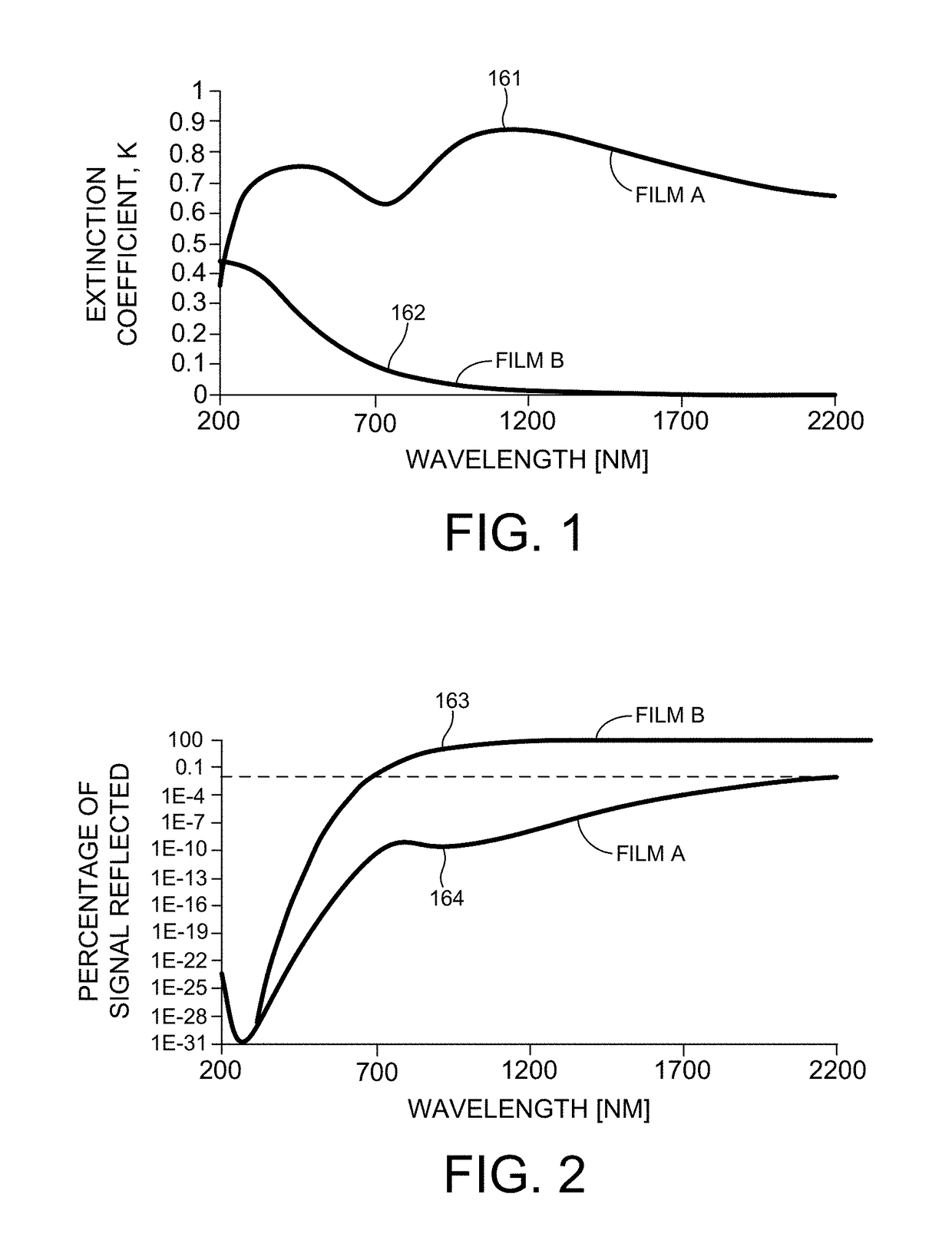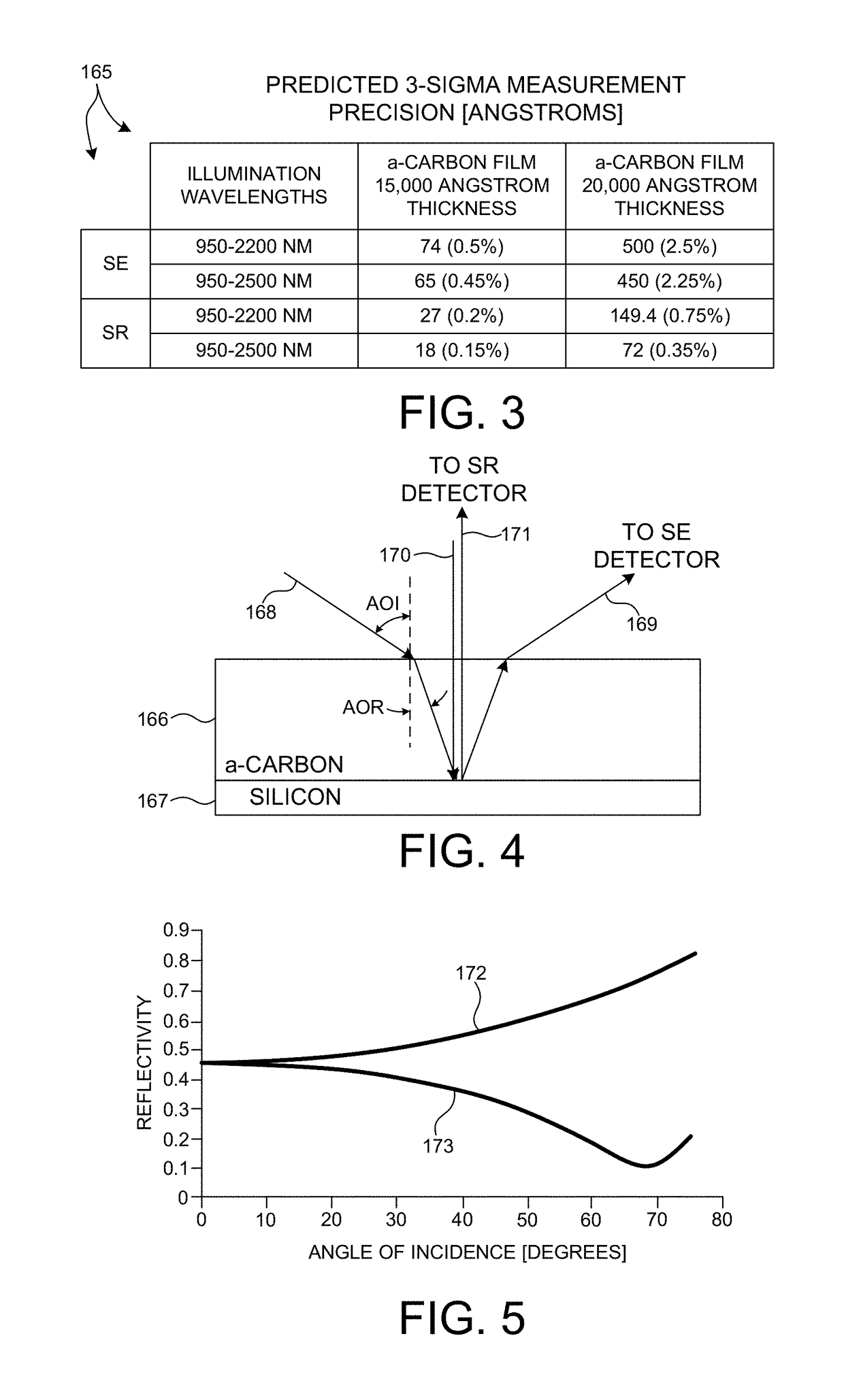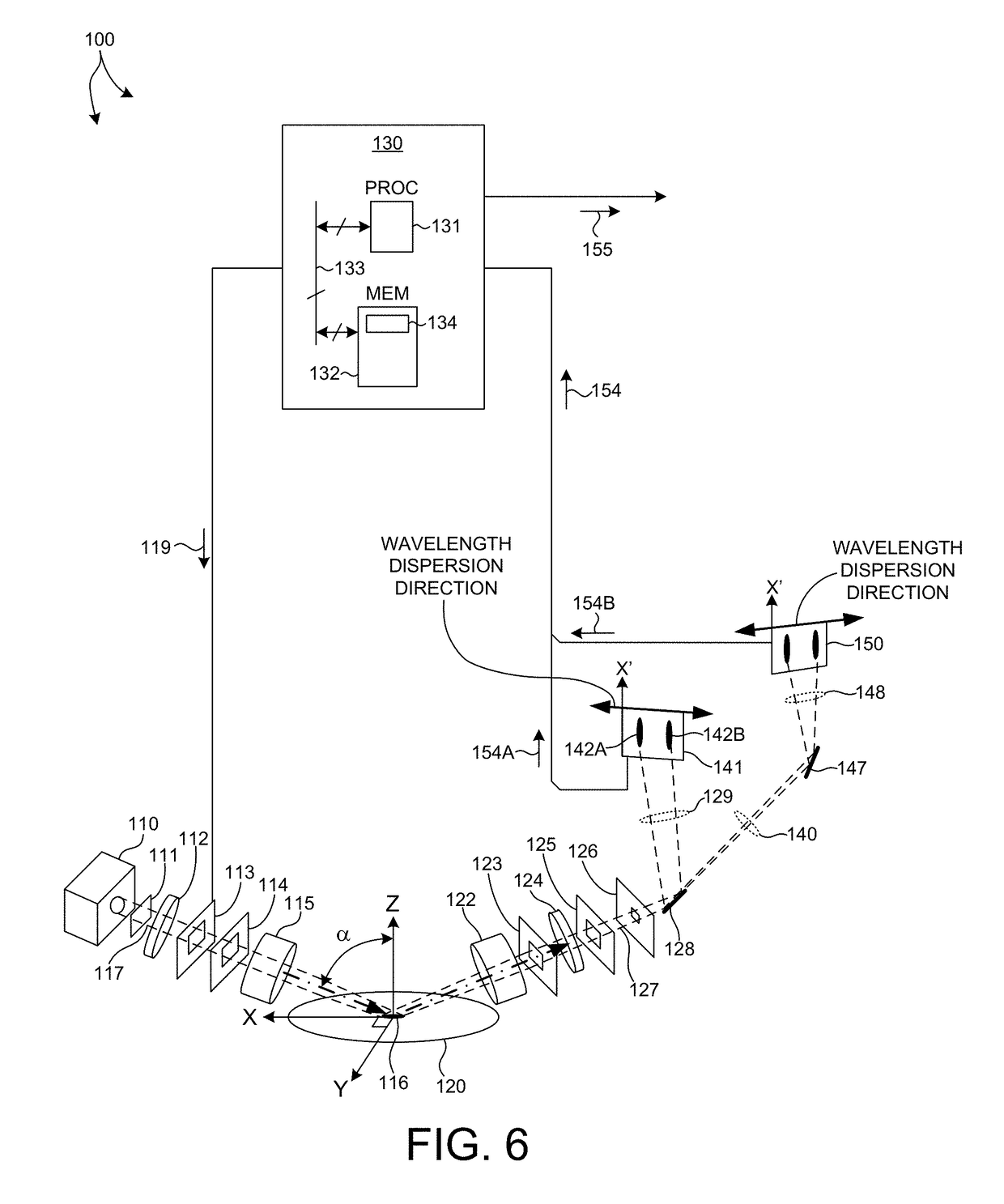Infrared spectroscopic reflectometer for measurement of high aspect ratio structures
a spectroscopic reflectometer and high aspect ratio technology, applied in the field of metalrology systems and methods, can solve the problems of many available high-throughput metrology techniques that cannot reliably perform cd and film measurements of high aspect ratio structures, and many optical techniques suffer from low signal-to-noise ratios (snrs), so as to reduce the influence of backside reflection, improve the accuracy of cd and film measurements, and improve the effect of signal-to-noise ratio ratio ratio ratio ratio
- Summary
- Abstract
- Description
- Claims
- Application Information
AI Technical Summary
Benefits of technology
Problems solved by technology
Method used
Image
Examples
Embodiment Construction
[0033]Reference will now be made in detail to background examples and some embodiments of the invention, examples of which are illustrated in the accompanying drawings.
[0034]Methods and systems for performing spectroscopic reflectometry measurements of semiconductor structures at infrared wavelengths are presented herein. In some embodiments, spectra including ultraviolet, visible, and infrared wavelengths are simultaneously measured at high throughput with the same alignment conditions. In this manner, machine errors, such as wavelength errors, are uniformly corrected across all measured wavelengths. In a further aspect, the spectroscopic measurements are performed off-axis from the direction normal to the surface of the wafer to reduce the influence of backside reflections on the measurement results. In another further aspect, a broad range of wavelengths are detected by a detector that includes multiple photosensitive areas having different sensitivity characteristics. Collected ...
PUM
| Property | Measurement | Unit |
|---|---|---|
| wavelengths | aaaaa | aaaaa |
| angles of incidence | aaaaa | aaaaa |
| angles of incidence | aaaaa | aaaaa |
Abstract
Description
Claims
Application Information
 Login to View More
Login to View More - R&D
- Intellectual Property
- Life Sciences
- Materials
- Tech Scout
- Unparalleled Data Quality
- Higher Quality Content
- 60% Fewer Hallucinations
Browse by: Latest US Patents, China's latest patents, Technical Efficacy Thesaurus, Application Domain, Technology Topic, Popular Technical Reports.
© 2025 PatSnap. All rights reserved.Legal|Privacy policy|Modern Slavery Act Transparency Statement|Sitemap|About US| Contact US: help@patsnap.com



